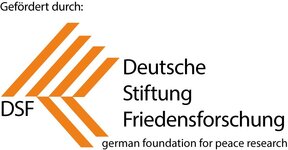Emerging Russian Diasporas: Exploring New Dynamics and (Im)Mobilisation Patterns
Anton-Wilhelm-Amo-Str. 60
10117 Berlin
Emerging Russian Diasporas: Exploring New Dynamics and (Im)Mobilisation Patterns
Anton-Wilhelm-Amo-Str. 60
10117 Berlin
The aim of this conference is to bring together researchers from different disciplines and a wider audience (activists, the media and policymakers) to discuss ongoing research on new migration patterns and emerging diasporas from Russia and Belarus in Europe and Eurasia. Towards the end of 2025, more than three years after Russia's full-scale invasion of Ukraine, it is time to reassess the dynamics of the political mobilisation of these migrants in different contexts.
Recent migration waves from Russia and Belarus have generated a variety of east-west and north-south trajectories that differ from traditional east-west migration. Historically, the latter has mainly been discussed in economic and ethnic terms. Yet the latest waves of migration challenge this perspective and introduce political dimensions to (im)mobility studies. We aim to shed light on how policies and political changes, such as the rise of the far right, the securitisation of migration and growing transnational repressions, affect emerging diasporic networks and political engagement.
The aim of the conference is to advance knowledge on how state policies in countries of origin shape anti-war and pro-war mobilisations and a variety of diasporic responses. Of special interest are the rise of repressive policies as well as risks and threats emanating from the countries of origin. We seek to develop theoretical frameworks for understanding Eastern European migration as conflict-generated yet embedded in a complex interplay of different forces. How does Russia's war against Ukraine affect migrants' identities, internal diversity, strategies and engagement with their home countries? To what extent does migration from authoritarian societies in Eastern Europe generate a specific logic of transnational (im)mobility?
What facilitates and hinders the political and social mobilisation of migrants from authoritarian Russia and Belarus? Why are Russian-speaking communities in Europe and Eurasia perceived as inactive and invisible diasporas? To what extent do emerging diasporic elites produce new institutions that forge new solidarities and dissent?
A better understanding of recent waves of migration can broaden our horizons on Eastern European migration patterns and shed light on how emerging diaspora communities can be instrumentalised by authoritarian pro-war regimes or become an integral part of democratic peacebuilding and resistance.
Impressions from the conference




Download the Conference Programme

